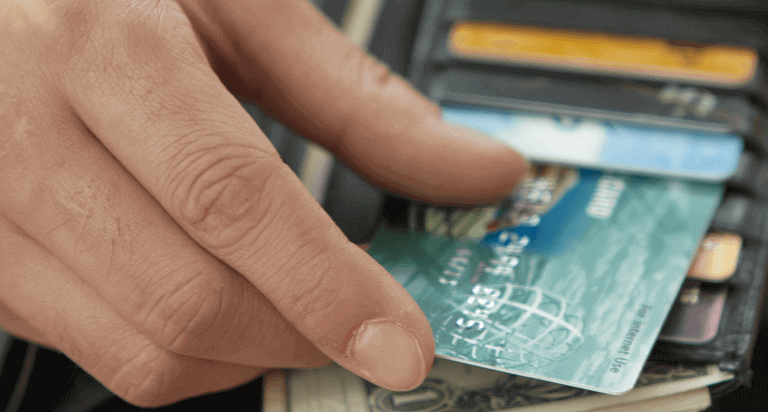You Ask, Equifax Answers: How Can I Reestablish Healthy Credit Habits After Bankruptcy?
Highlights:
- Filing for bankruptcy or going through a house foreclosure can have negative impacts on your credit scores.
- After you are financially stable, consider opening a new line of credit to reestablish healthy credit habits.
- Use credit responsibly and avoid late payments to establish a favorable credit history moving forward.
Question: I'm in the process of filing for bankruptcy and will likely go through a foreclosure next year. I'm worried about the long-term effects on my credit history. What, if anything, can I do to minimize the negative impact?
Answer: Going through a bankruptcy is difficult. Unfortunately, there are credit consequences from a bankruptcy or foreclosure.
Both have a long-term negative impact on your credit scores. A Chapter 13 bankruptcy or home foreclosure will stay on your credit reports for up to seven years. A Chapter 7 bankruptcy will remain on your credit reports for up to 10 years.
That's not to say your credit history can't improve after you've gone through those financial setbacks. Some people might find that their credit scores rise after their bankruptcy is discharged. The good news is after bankruptcy or foreclosure, you can immediately take steps that can have a positive impact on your credit history:
- Pull a copy of your credit reports and VantageScore credit score. You can get a free monthly Equifax credit report and free monthly VantageScore® 3.0 credit score by creating a myEquifax account. Then click on "Get my free credit score" on your myEquifax dashboard to enroll in Equifax Core Credit™. A VantageScore is one of many types of credit scores. You can also get your free credit reports at annualcreditreport.com.
- Make sure your credit reports are accurate. The accounts that were discharged in bankruptcy or foreclosure should be closed. If that information is not updated on your credit history, your credit scores may be penalized more than necessary. If you see something you believe is inaccurate or incomplete on your credit reports, contact your lender or creditor first. You can start or check on the status of a dispute on your Equifax credit report for free. You can also file a free dispute with Experian and TransUnion - the other nationwide credit bureaus.
- Prioritize making future payments on time. It sounds simple, but on-time payments and responsible credit card use can significantly help you recover from bankruptcy. Credit score providers will usually place more emphasis on events that happened in the past 24 months. Therefore, if you keep your open accounts in good standing, your credit scores could potentially improve within two years.
- Open a new line of credit. After some time has passed and you feel financially stable, consider opening a new line of credit with a reputable lender to reestablish healthy credit habits. Although some lenders may be hesitant to extend credit with a bankruptcy or foreclosure on your record, others may be willing to work with you.
If you're having difficulty qualifying for a new line of credit in the short term, consider these alternatives:
- Become an authorized user on someone else's credit card account. An authorized user is allowed to make purchases with a credit card but is not responsible for making the payments. Assuming the primary owner of the account makes their payments on time, you can expect a small bump to your credit scores. The benefit to your credit history may not be as helpful as if you were the primary cardholder, but it is still a relatively low-risk way to improve your credit scores.
- Have someone cosign a loan or new credit card. While it may be hard for you to take out a loan or open a credit card by yourself, someone with higher credit scores may be able to cosign with you. As long as your payments are on time, your credit scores will likely improve. However, if you make late payments, your and your cosigner's credit scores will likely both suffer.
- Apply for a gas station or local retail store credit card. Gas station and local retail store credit cards are typically easier to get approved for after bankruptcy. Once you have a history of making timely payments, other credit opportunities may become available.
- Consider working with a reputable credit counseling agency but avoid credit repair companies. The only lawful way to improve your credit scores is through responsible borrowing and repayment of debt, so beware of scams. Credit repair companies, for example, may take advantage of your situation and—for a fee—offer a "quick fix," claiming to erase negative events like bankruptcies from your credit reports or create a new credit identity for you. More often than not, you'll end up losing time and money, and may even face legal consequences. Instead, consider working with a reputable credit counseling agency that can present you with viable options such as a debt management plan.
Your credit scores won't rebound overnight after a bankruptcy or foreclosure. However, if you use credit responsibly and avoid late payments, you can establish a favorable credit history over time and get back on solid financial footing.
Get your free credit score today!
We get it, credit scores are important. A monthly free credit score & Equifax credit report are available with Equifax Core CreditTM. No credit card required.



